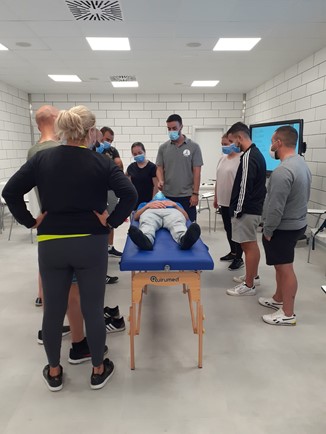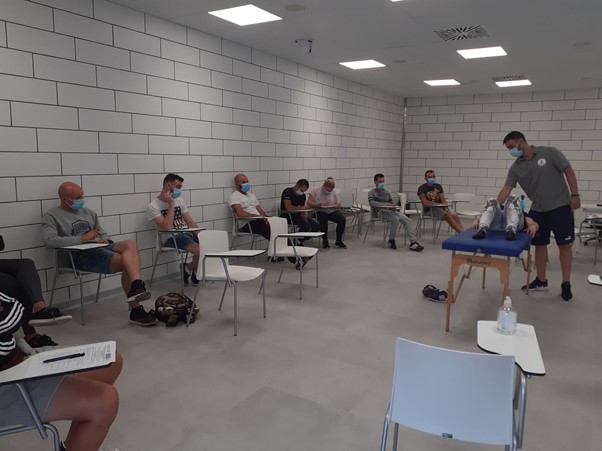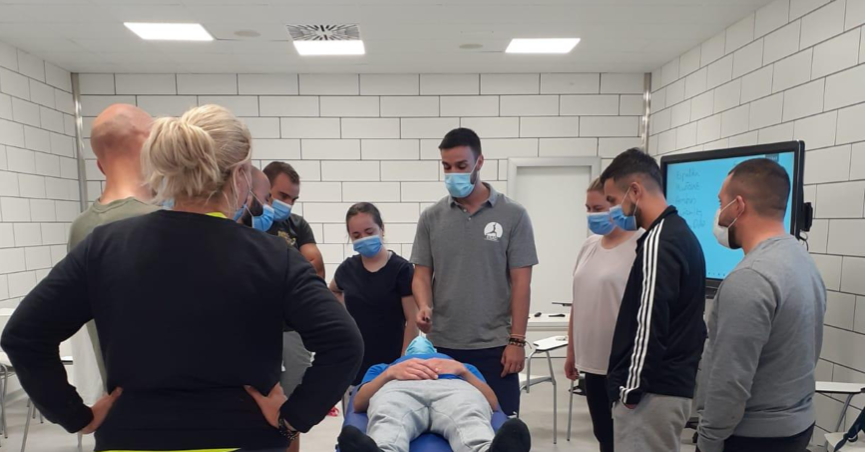In June, LCFG’s facilities hosted a course on Stretching and Postural Hygiene adapted to jobs in the meat sector and aimed at workers, in order to train attendees in postural health in their daily roles.

As part of the Occupational Risk Prevention program of the companies of La Comarca Food Group, this year different courses and training have been included with the worker at the center, through which employees can learn not only how to prevent injuries or accidents, but also how to improve their daily lives inside and outside the workplace, and everything that surrounds it.
One of these courses is Stretching and Postural Hygiene, given by ESAD (Escuela de Salud Articular Dirigida), through health professionals with experience in the meat sector and designed to suit the jobs and tasks performed there, focused on preventing and treating occupational MSDs.
MSDs (Musculoskeletal Disorders) are alterations suffered by body structures such as muscles, joints, tendons, ligaments, nerves, bones and the circulatory system. They can be caused or aggravated by actions performed at work and in everyday life, and the effects of the environment in which they occur.
The most common occupational MSDs affect the upper extremities, especially the neck, back, shoulders and elbows, but can also affect the lower extremities.
In order to prevent this type of disorders, it is essential to maintain a correct postural hygiene, as well as to perform each task correctly, in an ergonomic and careful way, controlling the movements we make throughout the day and emphasizing how we do them. Once the tasks are finished, in addition, a correct stretching and rest will provide the muscles with the necessary oxygenation and repair.
In relation to this, some of the topics discussed during the training have been:

- How to perform daily tasks while minimizing the risk of musculoskeletal problems.
- What to do once the working day is over to maintain overall health.
- How to create healthy habits for life.
- Education in aspects related to MSDs from a neurophysiological point of view (general and specific to the tasks to be carried out in the meat profile).
- Importance of neuroplasticity and how to change it to stop work-related threats.
- Practical wrist exercises, with emphasis on the prevention of Carpal Tunnel Syndrome (focused on meat profile).
- Practical exercises for the elbow and shoulder, taking into account possible tendinitis caused in the workplace.
- Practical exercises to improve the spine, especially the neck and lower back.
- Practical exercises for all joints and movements.
Given the success of the training and in order to be able to transfer it to all the workers of the companies, this same course will be given again during the month of July.


